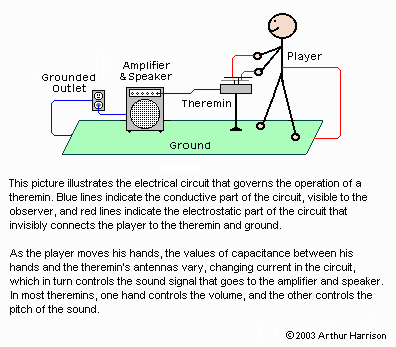Peter,
I would really like to hear your opinion on the question of the player 'modifying' the sound from a theremin, and your opinion on the respective 'balance' between the 'waveform' (core sound) put out by the instrument versus what the skilled thereminist (one with "music in their soul" ;-) can do with this, and how much you feel they can / do 'modify' this sound.
Am I barking up the wrong tree (or barking mad ;-)? .. Its ok, If you think I am, you can say so ;-)
You have probably played more classic and modern theremins than anyone else, and really played them - Iam on the 'outside' listening to recordings and subjectively evaluating what I hear, then ripping waveforms apart and coming up with hypotheses to explain my likes and dislikes - but I have no way of objectively evaluating the relative importance of the "component parts".
Some 'objectivity' is needed for the advancement of the instrument I think - If the "holy grail" can be more easily obtained by improving playability or responsiveness, then this should be a primary focus for new developments, if it is waveform or formant's, these may need more attention - But if it primarily comes down to the players skill and 'soul' (as I now suspect) then searching for the "magic" is just a waste of effort - The time better spent on precision engineering of that which can be engineered.
I am almost completely convinced that I am "right", LOL;-), That probably something way in excess of 50% of what makes some theremin performances wonderful and "mystical" is entirely down to the musician.. And I actually think this is true for classical and experimental, precision and 'chaotic' performances - That some people, knowingly or subconsciously, are able to get more from the instrument and particularly the instruments timbre than others, and that this is done real-time and dynamically.
But like everything I want to believe or (as in this case) dont want to believe, I lack faith ;-)
Fred.



